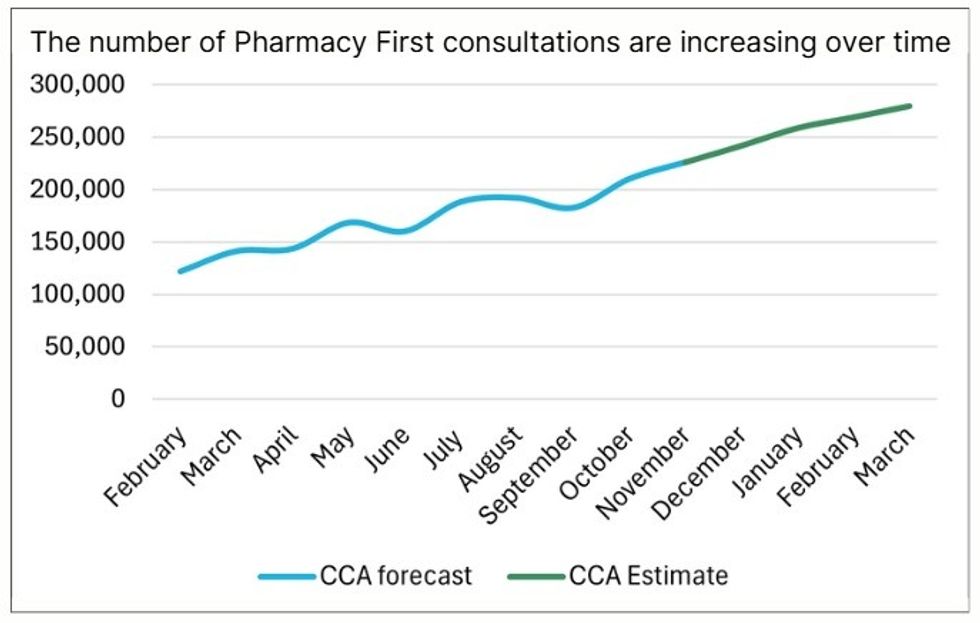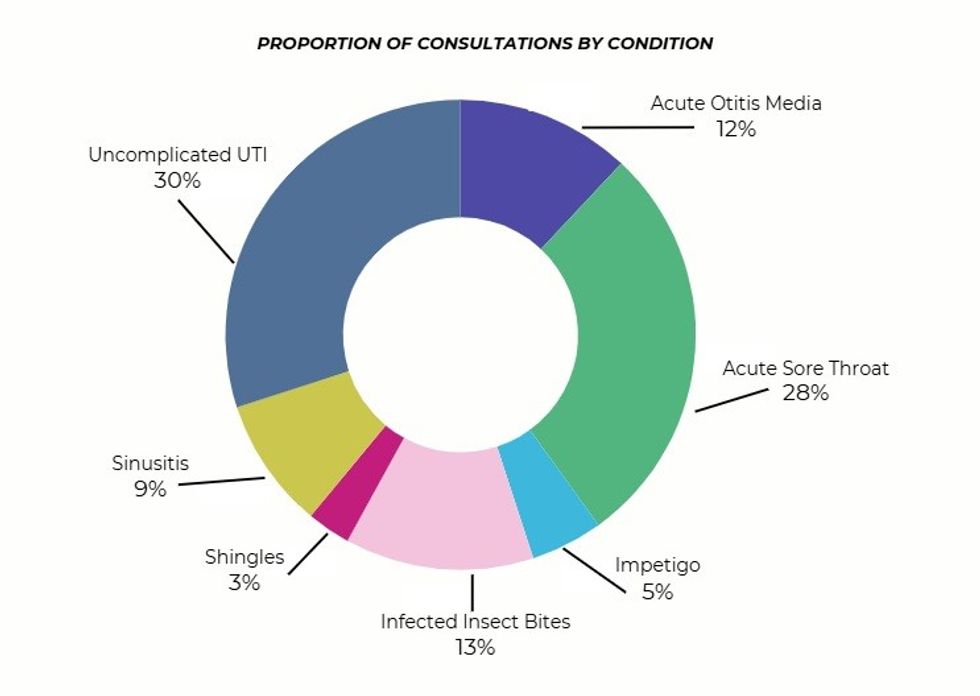Community pharmacies provided nearly 1.5 million Pharmacy First consultations in the first nine months
Marking Pharmacy First's first anniversary in England, the Company Chemists’ Association (CCA) has called on policymakers to expand the service, highlighting that there’s still “significant room for growth.”
In a report released today, the association estimates that expanding the service could free up 40 million general practice (GP) appointments every year – more than four times the current potential – and around a tenth of all GP appointments.
In its current form, the service is expected to free up more than 9 million GP appointments annually.
The CCA has recommended expanding the criteria and treatments available for the existing seven conditions and introducing new conditions.
According to the report, community pharmacies provided nearly 1.5 million consultations for the seven covered conditions —earaches, urinary tract infections, sore throats, sinusitis, infected insect bites, impetigo, and shingles — in just the first nine months.
It is projected that by the service’s current end date in April 2025, it will deliver 2.5 million consultations.
Projected Pharmacy First volumes – CCA figure
Malcolm Harrison, CCA’s chief executive, emphasised the potential for further improvements.
“In a short space of time, the community pharmacy sector has established a new access route into NHS primary care.
“Pharmacy First is allowing patients to be seen in a timely manner and freeing up vital GP capacity, so that they can focus on more acute and complex care.
“There is, however, still significant room for growth,” he said.
While Pharmacy First is working as intended, Harrison stressed the pharmacies should now be allowed to “move through the gears and expand the service to deliver greater patient access into primary care.”
Key findings from CCA analysis
The CCA’s analysis is based on data from over 3,000 pharmacies, covering the period from the launch of Pharmacy First on 31 January 2024 to 30 November 2024. The study found that -
- There is a distinct regional divide in Pharmacy First provision, with pharmacies in The Black Country providing over two and a half times more consultations than those in North Central London.
- UTIs accounted for 30% of all consultations each week, followed by sore throats (28%), infected insect bites (13%), ear infections (12%), sinusitis (9%), impetigo (5%), and shingles (3%).
- Over a quarter (27%) of consultations were provided in the 20% most deprived communities, demonstrating that national commissioning of pharmacy services can directly address health inequalities.
- Demand for consultations on Sundays was double the average during the week.
- Patient demand remains consistent throughout the month, with spikes around bank holidays, such as Easter, and a 15% increase during the CrowdStrike IT outage in July 2024.
UTIs accounted for most consultations each week - CCA figure
The report also highlighted that awareness of the service is still low but growing, underscoring the need for greater patient education on the availability of walk-in consultations at community pharmacies for these common conditions.
Recommendations for expansion
The CCA’s recommendations for expanding the Pharmacy First service include:
- Expanding the eligibility criteria of the current seven conditions to allow more patients to be treated.
- Shifting from a Patient Group Direction-led service to an Independent Prescribing-led service to enable pharmacists to treat more conditions with these conditions.
- Including additional conditions such as eye infections, migraines, chest infections, lower back pain, and dental pain.
Pfizer, which provided financial support for the report, welcomed the CCA’s forward-thinking recommendations.
Hetal Naik, Pfizer Ltd UK Primary Care Lead, said: “Pharmacy First is leveraging the reach of community pharmacies to provide essential services to everyone, precisely when and where they are needed, reducing pressure on the wider NHS system.”
“Pfizer stands firmly behind any measures that promote timely, equal access to healthcare services for any individual."
Launched on 31 January 2024, the NHS Pharmacy First service allows pharmacists to provide advice and where clinically appropriate, prescription-only medicines for seven common conditions: acute otitis media (earache), impetigo, infected insect bites, shingles, sinusitis, sore throat, and uncomplicated urinary tract infections in women.
The service is currently funded until April 2025.





















